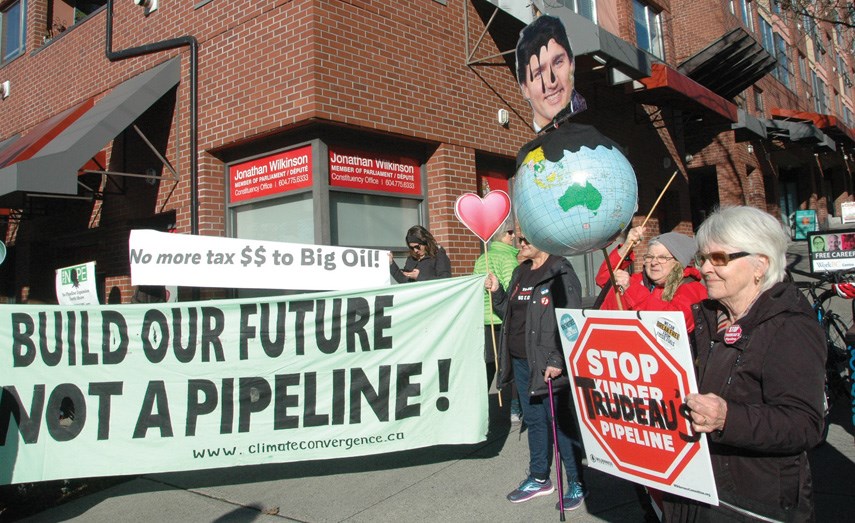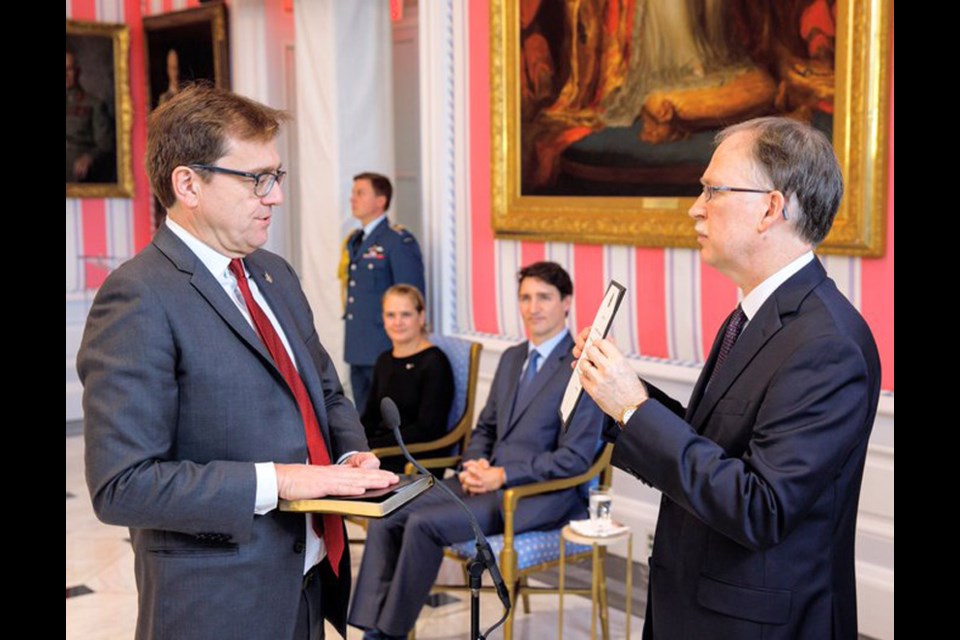North Vancouver Liberal MP Jonathan Wilkinson has been named Canada’s new minister of environment and climate change as Justin Trudeau’s new government was sworn in in Ottawa Wednesday.
“Of course, I'm greatly honored to be asked to serve in this capacity,” Wilkinson said. “This is fundamentally why I got into politics.”
When he had his sit-down with Trudeau to discuss the appointment, the prime minister cited Wilkinson’s background in the clean tech industry and his professional history in the Prairies “where, clearly, there are some concerns about how we address climate change,” Wilkinson said.
The party has promised to get Canada to net-zero carbon emissions by 2050 and Wilkinson’s job will be charting the pathway for that over his time as environment minister.
“I think doing that in a manner that actually responds to the concerns and aspirations of all regions of the country will be important, and looking at how we actually can generate economic activity and prosperity out of combating climate change, that is certainly something that I'm very interested in finding ways of doing.”
But even as he was being sworn in, more than two-dozen protesters from various environmental groups gathered in front of his Lower Lonsdale constituency office to demand the government halt plans to expand the Trans Mountain pipeline.
“We’re here to throw him a bit of a welcoming party,” said Peter McCartney, climate campaigner with the Wilderness Committee. “I’m so glad that the minister is now in British Columbia where we can come and show him every day the community he represents and the people in this city and across the province are opposed to his pipeline.”

McCartney said expanding the Trans Mountain pipeline would increase the emissions from Alberta’s tar sands by 20 per cent at a time Canada needs to be reducing its climate emissions.
“We need to cut our loses and take the tens of billions of dollars they are planning to spend to build the pipeline - that will be obsolete before it is even complete - and use that money to transition Alberta off of fossil fuels, off of this boom and bust economy and towards the green energy future that is already taking over everywhere we see,” he said.
In response, Wilkinson said he expects that not everyone will agree with his government’s decisions when it comes to the pipeline and climate strategy, but he said he stands by them.
“I would tell you that fundamentally, addressing climate change is about reducing demand for hydrocarbons. It's much less about supply,” he said, noting that will mean changes in transportation and industry are inevitable. “Ultimately, you probably will never get to unanimity. But those decisions need to be based on science and evidence, and they need to be transparent.”
Part of his work will be establishing new benchmarks and accountability measures to ensure the country’s emissions are on the downward trajectory they need to be, Wilkinson added, and Canadians can also expect more investments in clean technology.
Getting any environmental legislation through Parliament will require the Liberal minority governing wooing the support of at least one of the other parties, but Wilkinson said he isn’t worried about that.
“The vast majority of the parties representing two thirds of the population of Canada wanted aggressive action on climate change.” he said. “This is not or certainly should not be a partisan issue. This is a science issue. It is an issue about the future of our kids.”
As for the next parliamentary session beginning early next month, Wilkinson said he is looking forward to what he expects will be a more co-operative tone.
“I think what Canadians told all of us is they want us to dial down the partisan rhetoric. They want us to look to find ways to make Parliament work in an effective manner. I certainly am of the view that we should be doing that all the time,” he said.



